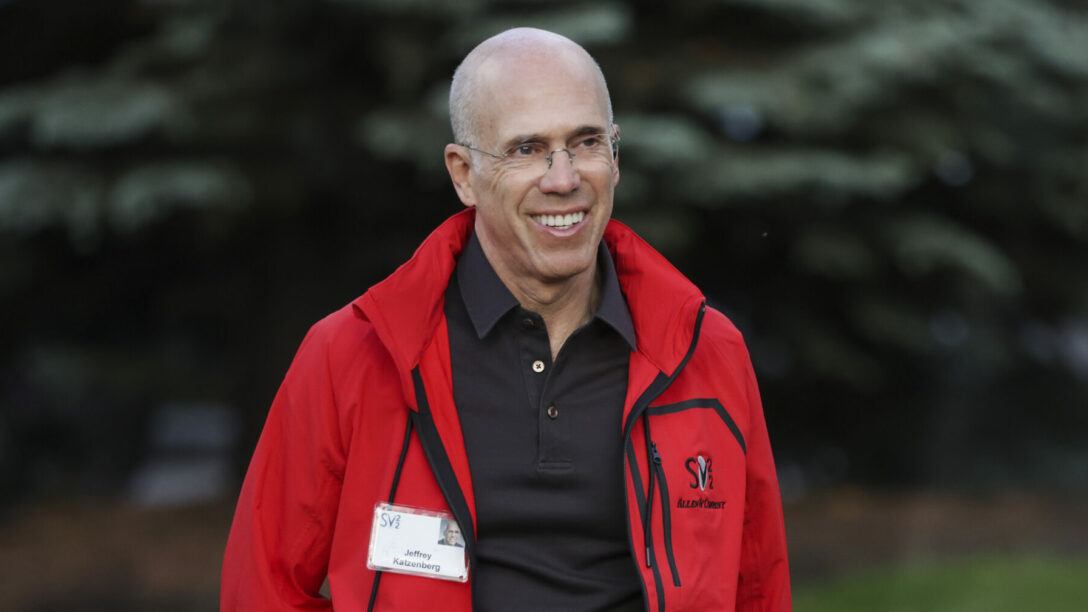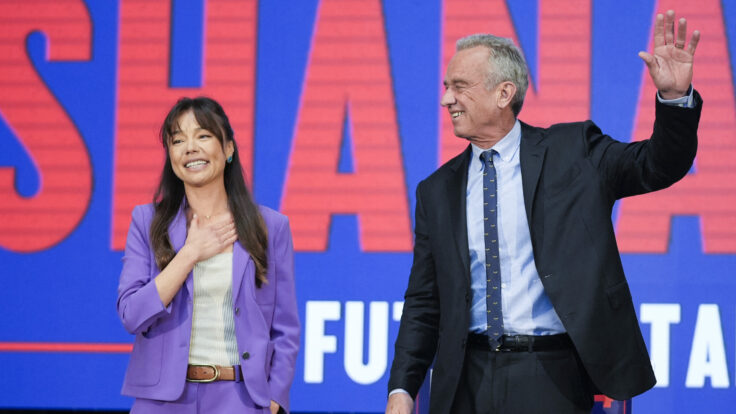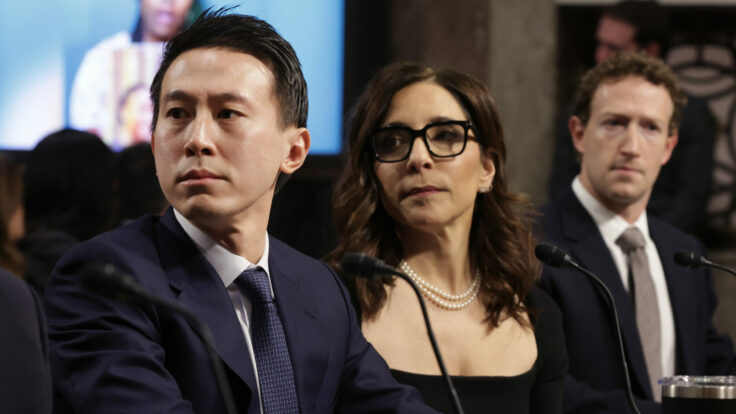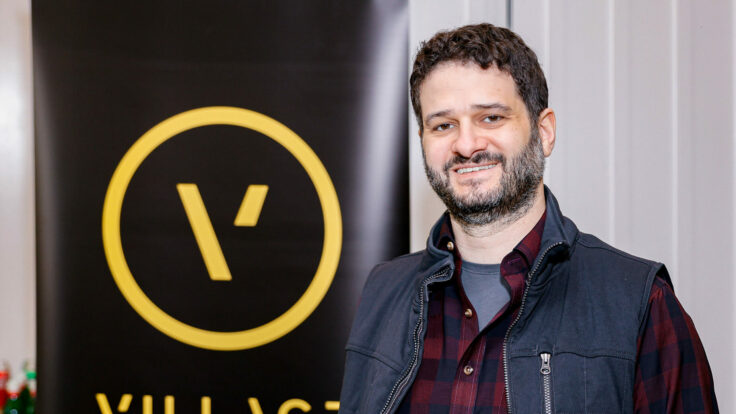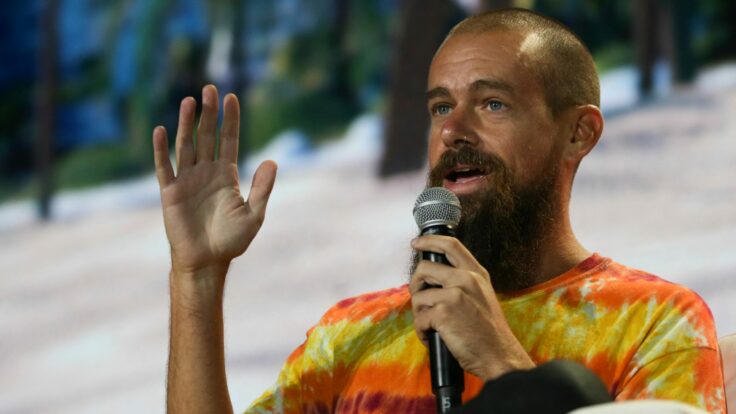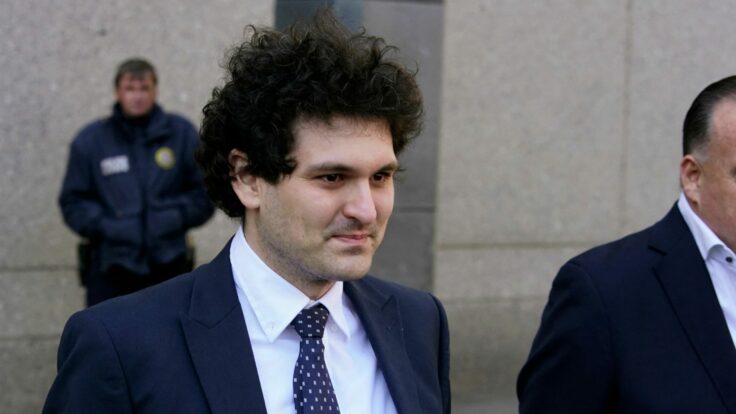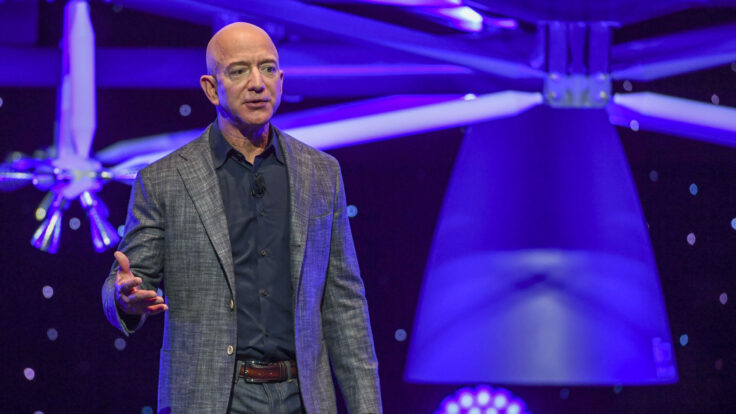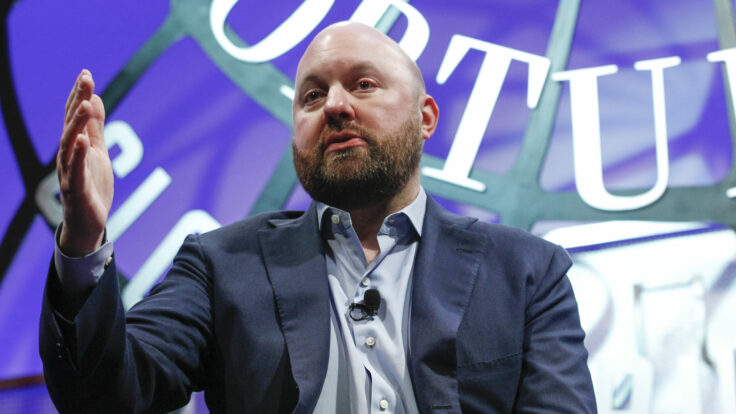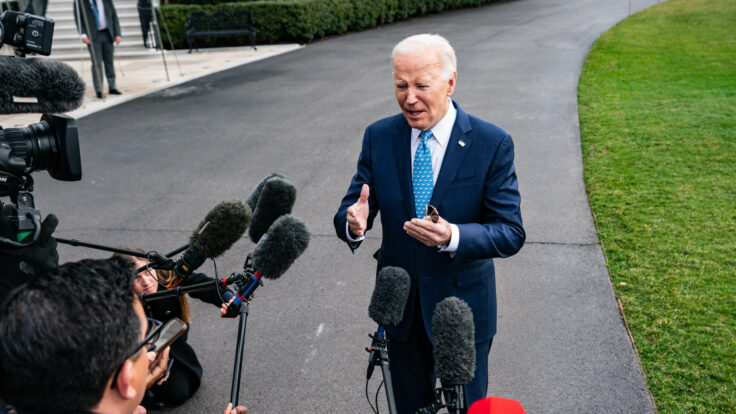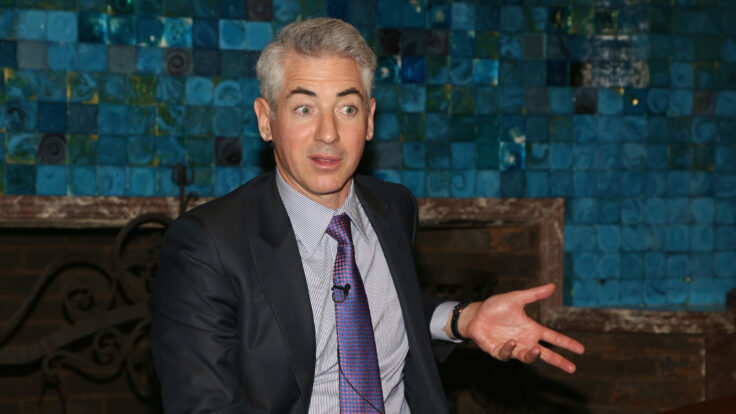One of the unspoken truths among Biden’s 2024 mega-bundlers is that this time will be harder—even though, as you recall, last time was pretty hard, too. Four years ago, after all, Biden had to scrounge for money on Zoom from a crisis-stricken billionaire class distracted by the once-in-a-century pandemic, crippling economic anxiety, and, at one point, a large Democratic field. But in the end, he feasted from the limitless appetite among liberal and center-right business leaders to get rid of Donald Trump, no matter the cost.
Now, as Biden announces his re-election bid, a quirky and entirely different fundraising malaise looms: Trump, once an omnipresent threat, seems quarantined in Mar-a-Lago and on Truth Social. The donor community in 2024 is widely expected to be a subset of the donors who participated in 2020, when American democracy felt on the line. Even if Trump is the nominee again, there’s a fear in Democratic fundraising circles that the election won’t feel quite as urgent or existential the third time around, potentially depriving Biden’s campaign of the resources they’ll need.
Meanwhile, a recession looms, key donors still feel like they haven’t been thanked for 2020, and some of Biden’s biggest fundraisers have been scattered to diplomatic postings around the world, taking them off the bundling chessboard. Denise Bauer, the former Obama bundler (and Ambassador to Belgium), is now the U.S. Ambassador to France. Former Comcast executive David Cohen, a close Biden friend, is serving in Canada. Longtime Morgan Stanley vice chairman Tom Nides is in Israel. Yes, there is some irony in the fact that Biden’s post-election donor giveaways might now impede future donations. But so it goes. The hangover from 2020 is real.
At 2:30 p.m. this afternoon, the president’s official fundraising season commenced with a “campaign launch briefing for supporters” hosted by top advisers and “special guests” Anita Dunn and Steve Richetti, according to a copy of the invitation I saw. And there’s a lot of work ahead: At a recent D.N.C. retreat in Scottsdale, headlined by an entertaining Doug Emhoff, bundlers were told to expect the need for Biden and his allies to raise at least $2 billion, all told and across all groups, to win in 2024. That figure struck several people as a low-ball.
Biden, of course, has never been a particularly energetic fundraiser, himself, raising the stakes for whomever will be tasked with overseeing the necessary campaign infrastructure. Over the last few weeks, the chatter in Democratic circles has revolved around whom among the fundraising whales, bundlers, and organizers will be appointed as Biden’s finance chair and director. What role will be played by the perennial bundler Jeffrey Katzenberg? What is the interest level of Facebook co-founder Dustin Moskovitz, or any of the other Silicon Valley interlopers who discovered political mega-donordom during the Trump era? For all the structural headwinds facing the Biden team, these are the tactical questions of the moment.
The Biden Org Chart
There are typically two roles atop the campaign-finance infrastructure. First, there is the finance director gig: a more functional staff position that oversees the mechanics of the fundraising operation, from event scheduling to donor prospecting. Dennis Cheng did it for Hillary in ’16, and Katie Petrelius did it for Biden in ’20. Then there is the more eminent finance chair gig: the chairman or chairwoman of the so-called National Finance Committee, a prestigious posting that effectively is focused on “helping bundlers be better bundlers,” in the words of one bundler. That role is typically solicited by the egotistical bundlers who want to be seen as the first among peers.
The dozen or so Biden fundraisers I surveyed are not expecting an empowered national finance committee chair this time around, continuing a recent trend among Democratic presidential campaigns. In 2008, Penny Pritzker played an extraordinarily important role, as national chair, in legitimizing Obama before the billionaire class, first in their native Chicago and then nationally; four years later, this became the full-time job of Matthew Barzun, whose manic work ethic made him something of a legend in Democratic money circles. But in 2016, Clinton changed tack, at least on paper, declining to have a single finance chair in an effort to decentralize power and flatten the org chart (not that it convinced anyone). In 2020, after striking out with Terry McAuliffe, Biden did technically have a finance chair in Las Vegas businesswoman Heather Murren, but she was an unusually low-profile figure, and several veterans of the 2020 bundling class told me they barely heard from her. “Invisible,” said one.
So how might Biden lean in 2024? Someone like Bauer, or several of the other top ambassadors, would’ve made for very plausible national finance chairs. Expected to play major roles are the D.N.C.’s top two fundraising officials, finance chair Chris Korge and his deputy (and a past chair, himself) Henry Muñoz. Some fundraising veterans see the N.F.C. chair role as primarily ceremonial anyway, and wonder whether a re-election campaign truly needs a national finance committee chair when so much of the political leadership would come from the White House and D.N.C. Then again, so much of political fundraising is all about ceremony and bullshit titles.
Several Biden allies predicted the campaign would forgo a single chair and split responsibilities between Korge and a few co-chairs. Still, a big name in a Pritzker-like role could help to secure financial commitments from the ultra deep-pocketed donors that Biden needs. The closest person in that capacity could be Katzenberg, a Hollywood mogul who has the gravitas in fundraising circles from a decade or two in the trenches, and who on Tuesday was named one of the campaign’s half dozen co-chairs. I’m told that Katzenberg also made a round of phone calls to many top Democratic fundraisers over the weekend to get other bundlers excited. In some ways, Katzenberg has ascended beyond just being a mere N.F.C. chair: The Biden team feels the decision to make Katzenberg a co-chair of the entire campaign—on par with incumbent U.S. senators and governors—shows just how involved the fundraising hero is going to be in all facets of the campaign, not just bundling.
The Race for No. 2
When it comes to the more tactical finance director role, there is an intense behind-the-scenes fight being waged by allies over who will win the job. The two finalists are widely believed to be Michael Pratt, who currently serves as finance director of the D.N.C., and Kevin Geiger, who helps with fundraising for several Biden outside groups. (A dark-horse name: Sharon Weber, a fundraiser who now works at State helping with ambassadorships.) Each of them has their admirers and detractors, and believe me, I’ve heard from all of them over the last few days.
My best read from the totality of sources is that Pratt is the slight favorite, in part because he’s already in the building, so to speak. No decision has been made, and the situation is very fluid. Pratt, I’m told, had recently been pitching fundraisers for roles that he has said would likely eventually transfer over to the campaign, suggesting that he sees himself as the favorite for the position and has the authority to make those promises. Pratt and his deputy, Colleen Coffey, were the ones who invited D.N.C. donors to the Tuesday afternoon call with Dunn and Ricchetti.
Pratt spent eight years as the finance director for Elizabeth Warren at a time when she was quite comfortable wining-and-dining over champagne and canapes. Indeed, Pratt was apoplectic when she renounced high-dollar fundraising events after declaring her presidential campaign in 2019: “He pointed out that winning over wealthy fund-raisers across the country helped build networks that could translate into political support, not just checks,” the Times reported back then. Pratt, having lost that argument, chose to resign.
Pratt is generally well-liked—sources described him as a steady, up-for-the-job fundraiser with all the requisite national experience—and comes with Coffey, who quit Warren’s campaign alongside him and with whom practically he can’t work without. I’ve heard two knocks on him: First, that he has been in charge of the D.N.C. fundraising program at a time when some donors feel they haven’t gotten all the TLC that they expect (more on that in a minute). Second, some Democrats also have wished he would drop his consulting work for California Senate candidate Katie Porter, which could have presented a conflict of interest. But I have learned that Pratt has recently resolved this by no longer representing Porter.
Geiger, on the other hand, oversaw fundraising in the northwest region for the Biden campaign in 2020. His group eventually netted $45 million. Geiger has more fans in the Biden inner circle than Pratt does, and these days helps raise for several blessed Biden outside groups, such as Future Forward and Building Back Together. The Seattle-based Geiger does have his critics—I’ve heard complaints that he can come across as transactional—but he is seen as highly skilled at the politics of managing donor personalities, which, of course, is a huge part of the job. (Neither Pratt nor Geiger returned requests for comment.)
The $2B Target
Whomever is chosen has their work cut out for them. I’m told that the Biden team feels good about what they’re inheriting from the Democratic National Committee, which raised $276 million last cycle. And to be sure, major donors are always griping about something or another, usually about the lack of relationship-tending and back-scratching in between when their checks are cashed and when the re-election campaign comes back around for more. Nevertheless, for the past two years, I’ve heard too many complaints from donors about how the Biden folks didn’t invite them to this Hanukkah event, or that Easter Egg roll, or gave short notice for an invitation to long-scheduled anniversaries. (My Puck partner Tara Palmeri has also recounted plenty of these grievances in her work.)
Some blame that on people like Pratt. The lack of Clintonesque care has been so conspicuous, in fact, that I heard a number of theories from donors who suspected, after logically assessing the evidence, that Biden must not be running for re-election. Surely, otherwise, his team couldn’t be so bad at this.
The Biden team, now playing some catch up, has invited 50 to 100 donors to attend a series of briefings in Washington later this week. These briefings are expected to answer a number of questions for the Democratic big-money establishment, perhaps including who will serve as national finance committee chair and finance director. But, like many donor-appreciation events in the Biden era, even this weekend’s briefing was so hastily scheduled that a number of donors have told me that they’ll be unable to attend.
At least the bundlers, who are hyper-competitive and obsessed with their stats, received their unique attribution-coded links in the last week or so to begin getting credit for whatever money they corral into Biden Victory, the joint fundraising vehicle that can take in checks of up to $900,000 this cycle. On Tuesday, the emails started firing: California entrepreneur and longtime Democratic bundler Steve Westly wrote his network with his own link that he “will be taking a major fundraising role in the national campaign,” according to a note I saw. When I saw that, I had to wonder: Is that even true these days, just because you brandish a link? What some Democratic fundraisers will concede—okay, the honest ones at least—is that they just aren’t as important as they were 15 years ago.
Pity the hard-dollar bundler who, after all the ego-stroking, event planning, and coordination with the candidate, only pulls in $100,000. Nowadays, post-Citizens United and with the advent of new digital tools, like recurring donations, political campaigns are more heavily dependent on what you could consider the two ends of the barbell distribution: the smallest contributors, who cut endless two-figure checks after each viral debate moment or email blast, and the ultra deep-pocketed donors, who make $5 million or $15 million contributions to outside groups if one Hamptons meeting goes well. Perhaps the Biden team is also now wise to that impolitic reality: In 2024, the president doesn’t have to worry much about his top 1,000 supporters. Better to focus on the top ten, and the bottom ten million.
